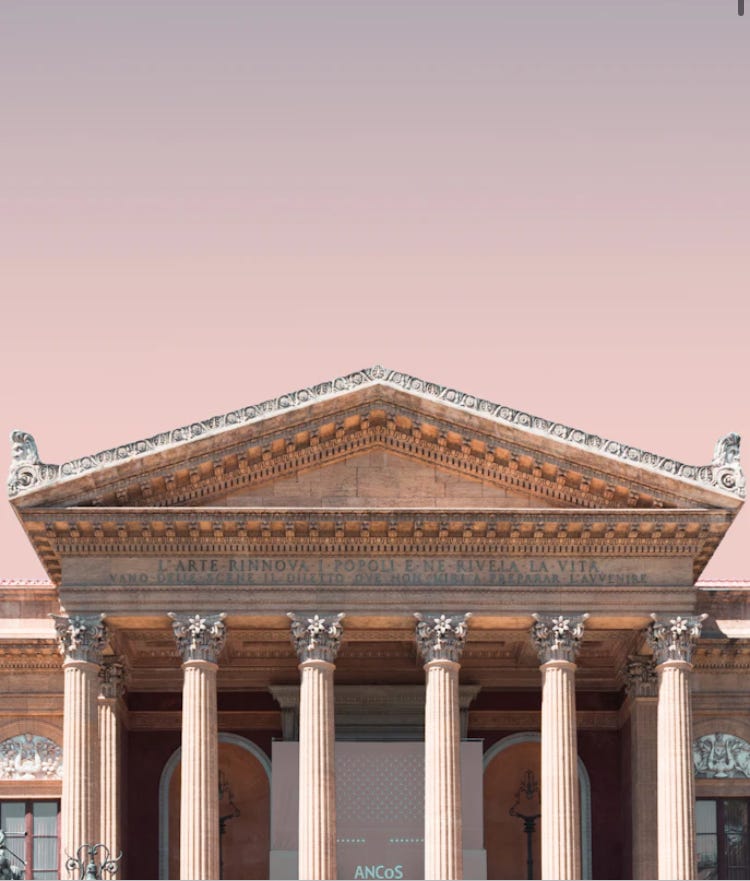In her latest book, "How the World Made the West," Josephine Quinn challenges conventional notions of Western civilization, arguing that it has always been a flawed concept. Quinn, a historian and archaeologist at Oxford, dismantles the idea of "civilisational thinking," emphasizing the interconnectedness of peoples throughout history.
Notions of civilisation and imperialism interconnected and flawed
The notion of civilization, Quinn points out, is a relatively modern invention, gaining prominence in the 18th and 19th centuries. During the era of imperialism, Western historians crafted a narrative that glorified Greek, Roman, and Christian civilizations as the foundation of "Western" or "European" civilization, while dismissing others as inferior.Quinn debunks this narrative by highlighting the extensive cross-cultural exchanges that have driven human progress.
Ancient Greece influnced by Middle east
She illustrates how ancient Greece, far from being an isolated originator of civilization, was heavily influenced by Egyptian, Sumerian, Assyrian, and Phoenician cultures. Additionally, she challenges the myth of Athens as the birthplace of democracy, revealing that democratic governance existed elsewhere long before Athens adopted it.Drawing on a wide range of primary sources and recent scientific studies, Quinn's scholarship is both thorough and illuminating. Her narrative captivates with its focus on the unexpected connections between cultures and eras, offering a fresh perspective on familiar historical events."How the World Made the West" contributes to a growing body of literature that reimagines history through innovative frameworks. Like other works in this genre, such as David Graeber’s and David Wengrow’s ”The Dawn of Everything”, Yuval Noah Harari's "Sapiens" and Peter Frankopan's "The Silk Roads," Quinn's book challenges readers to rethink traditional narratives and recognize the complexity of human history.
Age of Enlightment inspired by the West’s meeting with the Global South
Graeber and Wengrow show how the Age of Enlightenment and Modern Western “Civilization“ was inspired almost 100 % by the meetings especially with the North East American Natives. The European thinkers were so humiliated by all the inspiration to ideas like freedom and empathy that they got from these natives, that they soon began to hide these inspirations away. Most civilisations have had very different ways of organising society and different ideas of equality/unequality than the West. Many of these forms were more equal and playful than the ideas of the West. The form of unequality with hereditary classes were born in the ancient Middle East and spred to the world by the Western Colonization of the Global South. In many countries before this, the subordinate person for example during winter was in a superior position in the summer. This made sure that those in power were not too harsh when they were in power.
European idea of ownership misued to pillage
Most societies did not have the strict, absolute Roman idea of Roman private ownership, where the owner also had the right to destroy what he possessed. Most civilsations had the idea that owning was either some kind of a loan or at least that the owner should care for the wellbeing of what he/she owned. But the Western colonizers also didn’t recognise ownership if the discovered culture didn’t use it for production in the European way. Many times these interpretations of the discovered people’s lack of production was a lie that enabled the Western appropriation of the discovered property.
Graeber and Wengrow also show proof that people have migrated even across continents ever since the stoneage. In the beginning this was especially important for genetic variation. Today, the European gene pool is extra homogenous.
Equality very old history
The eldest societies were very equal. The remains of espeically ornate and therefore unequal graves were almost always of handicapped people. So the oldest idea was that everybody was equal, but that you had to show extra care for the sick and disabled.
This is in concordance with the British anthropologist Mary Leaky (1913-1996). Mrs. Leaky stated that the oldest signs of civilisation is when researchers find remnants of old corpses having survived a major bone fracture. Animals die when they suffer a major bone fracture otherwise.
In a time when some may consider history irrelevant, Quinn's book serves as a timely reminder of the enduring importance of meetings between civilizations. By questioning established truths and embracing a broader view of civilization, "How the World Made the West" offers valuable insights into the forces that have shaped our world.
Photo: Simon Marsault at Unsplash





Thanks for the text. I have not read the book but I find it interesting for my future writings about civilisationism as in relation to the far-right.
One could add the European admiration for China in the 18th century, with the copying of their notion of "civil servant", with classic education and all.